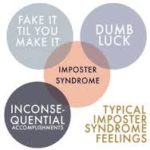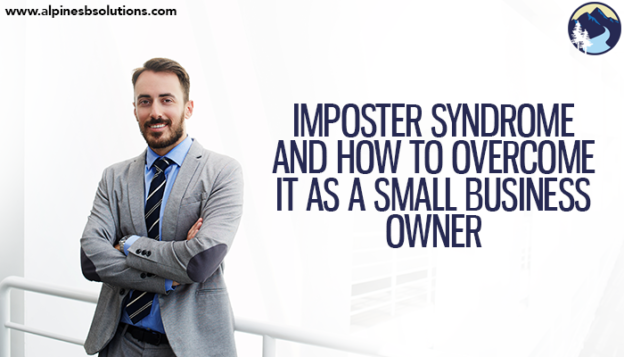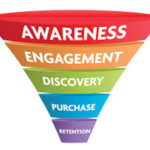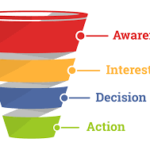As a small business owner, you encounter your share of battles to overcome. But sometimes, the biggest battle is your own internal monologue.
I can’t actually do this. I feel like an imposter pretending to be cut out for this life. People think I’m qualified, but if they only knew…
These defeating thoughts are common in people with imposter syndrome, which tends to be found among highly successful and high achieving people.
AKA: you!
Imposter syndrome acts like a crippling sickness that keeps us from being bold in our personal and professional lives, robbing us of growth, success, and even happiness.
It’s a terrible thing to experience. But, it is something that can be conquered!
What Really Is Imposter Syndrome?
 Imposter syndrome is a term often thrown around and splashed in click baiting headlines, leaving people confused as to what it actually is (and whether they’re affected by it).
Imposter syndrome is a term often thrown around and splashed in click baiting headlines, leaving people confused as to what it actually is (and whether they’re affected by it).
Imposter syndrome was created in the 1970s by psychologists Pauline Clance and Suzanne Imes, who described it as a feeling of “phoniness in people who believe that they are not intelligent, capable or creative despite evidence of high achievement.”
Did you catch the irony? It’s those who are capable and qualified (evidenced by their previous high achievement) who doubt themselves to a debilitating degree.
Basically, imposter syndrome is a terrible, gut-sinking feeling experienced by motivated and successful people that keeps them from taking action out of a false perception of their own inferiority.
It’s important to note that imposter syndrome is not humility. Humility is an accurate view of your self-worth. Imposter syndrome is a skewed view of your “lack” of ability and success.
It’s also not the same as having a realistic perspective. Being a realist means your lack of action comes from the potential risks outweighing the potential benefits. Imposter syndrome, however, keeps you from acting because you falsely believe you’re not capable.
 Imposter syndrome is the little troll on our shoulder feeding us lies about our potential. It keeps us from being the best small business owners we can be. We hesitate to take our company in a new direction…because we’re the ones who must lead it there. At networking events, we keep to ourselves because we don’t think we can offer anything of value to potential connections. Our own lack of confidence can rub off on our employees, making it harder for them to be bold and daring.
Imposter syndrome is the little troll on our shoulder feeding us lies about our potential. It keeps us from being the best small business owners we can be. We hesitate to take our company in a new direction…because we’re the ones who must lead it there. At networking events, we keep to ourselves because we don’t think we can offer anything of value to potential connections. Our own lack of confidence can rub off on our employees, making it harder for them to be bold and daring.
When we buy into lies about our capability, our business suffers. And more importantly, our mental and emotional well-being suffers. Imposter syndrome has no place in your life!
How We Perceive Success
One of the root problems of imposter syndrome comes from an inability to internalize previous success accurately. Remember, imposter syndrome happens in people with high success. Our brains have to justify the poor views of ourselves against the list of objective successes, and it does so with two approaches.
Our brain says we just got lucky. Our success isn’t due to our own efforts, we were just in the right place at the right time. Often, our brain tells us we shouldn’t take a chance because the luck we’ve been coasting on may run out.
Or, our brain says our success isn’t really that big of a deal. Our accomplishments are overblown in the eyes of others. So, we shouldn’t get cocky about trying, because really, you’re an imposter for believing you’re capable of high achievement.
If one (or both) of these mindsets resonates with how you perceive your success, then you’ve identified the first way you can overcome imposter syndrome. It’s hard, but you need to consciously work on reframing how you view success.
 It’s okay to celebrate and take pride in your success. In fact, it’s important for your confidence’s sake to view your success accurately. (That means recognizing the role your ability and hard work played!)
It’s okay to celebrate and take pride in your success. In fact, it’s important for your confidence’s sake to view your success accurately. (That means recognizing the role your ability and hard work played!)
Try this exercise. Physically write out past successes. Then write out how your talents, skills, and time got you those successes. It’ll help you fight the “it was just luck” or “it really wasn’t that impressive” defeatist thoughts. When you experience imposter syndrome thoughts, review the list. It’ll be a little pep talk from you to you.
Other Strategies for Overcoming Imposter Syndrome
There are a few ways you can work to get imposter syndrome out of your life. Try the ones that appeal to you (or try them all and see what helps). It won’t happen overnight, but you can work to a life free of imposter syndrome.
- Remember that you’re not alone. Be reassured that many people experience imposter syndrome. Even famous people like Tina Fey, Kate Winslet, and Maya Angelou all struggle with it! Other people have felt exactly as you do right now, and other people have conquered your battle, too.
- Don’t think more success is the answer. Some people think they just need to rack up
 a list of more achievements to feel more confident. But, the problem with imposter syndrome isn’t a lack of success (since it happens with people who are very successful). It’s not being able to internalize accurately those successes. Imposter syndrome won’t go away with more success.
a list of more achievements to feel more confident. But, the problem with imposter syndrome isn’t a lack of success (since it happens with people who are very successful). It’s not being able to internalize accurately those successes. Imposter syndrome won’t go away with more success. - Hear from others’ experiences. When we buy into the “I’m the only one feeling this way” trap, we’re left feeling powerless. Books like Sheryl Sandberg’s “Lean In”, which talks about common fears of women in the workplace, can help us feel empowered knowing we aren’t alone. You can also read celebrity quotes on imposter syndrome to see how others feel.
- Express your expertise. Find ways to position yourself so you’re sharing what you know with others. It can help you realize you know more than you give yourself credit for. You can serve as a mentor for someone involved (or interested in) your industry. Be an active participant for industry-focused Facebook or Google+ groups, answering questions and offering advice. You’ll see that you know more, and are capable of more, than you thought.
- Lean on loved ones. It’s scary to admit you’re struggling, especially to people who exalt you for your abilities. But your friends and family can be an invaluable resource, working as your cheerleaders talking down negative self-talk. You can also reach out to people experiencing similar struggles, supporting each other and going through the process of overcoming imposter syndrome together.
It’s terrible to feel imposter syndrome, but it can and will get better! Remember, you ARE capable, smart, talented, and you absolutely can do this.




 Tripwires utilize the persuasion principle of consistency. People have a need to rationalize their behavior as consistent, whether they are aware of its impact on their decisions or not. After they agree to a small request, they become more likely to agree to a similar but larger request. They start to feel safe with your company and products. It’s why you may find yourself picking your friend up from the airport a few weeks after you agreed to pick him up for a social outing. As long as the second larger request is similar in nature to the first smaller request, it’s likely individuals will comply.
Tripwires utilize the persuasion principle of consistency. People have a need to rationalize their behavior as consistent, whether they are aware of its impact on their decisions or not. After they agree to a small request, they become more likely to agree to a similar but larger request. They start to feel safe with your company and products. It’s why you may find yourself picking your friend up from the airport a few weeks after you agreed to pick him up for a social outing. As long as the second larger request is similar in nature to the first smaller request, it’s likely individuals will comply. A tripwire also needs to be low risk. It’s great if a
A tripwire also needs to be low risk. It’s great if a  Whichever way you choose the important piece is to follow up. You have a hot buyer…check in when him. Certain tripwires are set up well for an immediate pitch (while you’re buying this dog teeth cleaning, get your dog groomed and covered with flea and tick prevention at the same visit). Others work better as a follow-up (now that you’ve completed our first course, sign-up for the entire program). Find what meets your sale best.
Whichever way you choose the important piece is to follow up. You have a hot buyer…check in when him. Certain tripwires are set up well for an immediate pitch (while you’re buying this dog teeth cleaning, get your dog groomed and covered with flea and tick prevention at the same visit). Others work better as a follow-up (now that you’ve completed our first course, sign-up for the entire program). Find what meets your sale best.
 A sales funnel is an analogy used to explain how the sales process works. It serves as a visual representation of how an individual moves from knowing nothing about your organization to becoming a loyal customer and hopefully brand evangelist for you. The mindset of a sales funnel views sales as a proactive process of making customers (as opposed to the more passive process of finding customers). The underlying goal of the sales funnel is to convert those who are unaware of your organization to happy customers by finding as many
A sales funnel is an analogy used to explain how the sales process works. It serves as a visual representation of how an individual moves from knowing nothing about your organization to becoming a loyal customer and hopefully brand evangelist for you. The mindset of a sales funnel views sales as a proactive process of making customers (as opposed to the more passive process of finding customers). The underlying goal of the sales funnel is to convert those who are unaware of your organization to happy customers by finding as many  become a customer. In situations where contracts need to be renewed or purchases made again, the customer will enter a re-evaluation phase. In some respects, they become a prospect again since they can now evaluate their other options.
become a customer. In situations where contracts need to be renewed or purchases made again, the customer will enter a re-evaluation phase. In some respects, they become a prospect again since they can now evaluate their other options.  number of individuals at each stage, the percent of customers made from leads, and the average time it takes to move a customer down the funnel. Gathering these metrics provides you with a more holistic method of comparison to gauge successful sales efforts than just sales completed. After enough time using the sales funnel, you’ll be able to see a baseline of what you can expect from your sales team. Deviations from this baseline will show you what works well or what needs to be improved in your sales strategy.
number of individuals at each stage, the percent of customers made from leads, and the average time it takes to move a customer down the funnel. Gathering these metrics provides you with a more holistic method of comparison to gauge successful sales efforts than just sales completed. After enough time using the sales funnel, you’ll be able to see a baseline of what you can expect from your sales team. Deviations from this baseline will show you what works well or what needs to be improved in your sales strategy. the numbers will always be high at every phase. The reality, however, is that the numbers fluctuate often. Using a sales funnel highlights areas that should be targeted to get the numbers to where they need to be for effective customer recruitment. If you see you’re lacking leads, you can put more resources into lead generation. If you see you have enough leads but not enough are becoming prospects or committed, you can put more resources into bettering your pitch. If you see enough customers aren’t returning when contracts need to be renewed, you can put more resources into customer service.
the numbers will always be high at every phase. The reality, however, is that the numbers fluctuate often. Using a sales funnel highlights areas that should be targeted to get the numbers to where they need to be for effective customer recruitment. If you see you’re lacking leads, you can put more resources into lead generation. If you see you have enough leads but not enough are becoming prospects or committed, you can put more resources into bettering your pitch. If you see enough customers aren’t returning when contracts need to be renewed, you can put more resources into customer service.
 Marketers use tools to nurture leads along each stage of the funnel. Visitors to your site can give their email in exchange for a free downloadable guide (gaining awareness). A follow-up email gives them a curated list of relevant blog articles on the site (gaining interest). A follow-up email to that gives them a case study showing the benefits of your products/services (gaining desire). A follow-up email to that gives them a coupon to buy your products/services (taking action).
Marketers use tools to nurture leads along each stage of the funnel. Visitors to your site can give their email in exchange for a free downloadable guide (gaining awareness). A follow-up email gives them a curated list of relevant blog articles on the site (gaining interest). A follow-up email to that gives them a case study showing the benefits of your products/services (gaining desire). A follow-up email to that gives them a coupon to buy your products/services (taking action). they need to know it exists. Insert the marketing funnel! You can use the marketing funnel to direct people to the end action: acting on the trip wire. Social media, blog posts, emails can all give that push towards buying the trip wire. Not everyone will make it from gaining awareness to making that purchase. But strategic marketing can help get more people to that purchasing point.
they need to know it exists. Insert the marketing funnel! You can use the marketing funnel to direct people to the end action: acting on the trip wire. Social media, blog posts, emails can all give that push towards buying the trip wire. Not everyone will make it from gaining awareness to making that purchase. But strategic marketing can help get more people to that purchasing point.
 You’ve probably heard this phrase before. Many, many, many times I imagine. Let’s quickly debrief anyway.
You’ve probably heard this phrase before. Many, many, many times I imagine. Let’s quickly debrief anyway. Automation, when done well, can be a marketer’s best friend. First of all, it saves you an immense amount of time. Instead of you sitting down to individually send an email to people at each stage of the funnel, these emails can be sent automatically.
Automation, when done well, can be a marketer’s best friend. First of all, it saves you an immense amount of time. Instead of you sitting down to individually send an email to people at each stage of the funnel, these emails can be sent automatically. attention (since that “unsubscribe button” is all too easy to press). Send a follow-up email to those who subscribed giving them more helpful information. Nothing sales-y here either! The goal is to intrigue your audience about your brand by showing you know your stuff. Send an email with a round-up of useful articles on the given topic. Share valuable resources. Prove that your emails (and your company) offer value.
attention (since that “unsubscribe button” is all too easy to press). Send a follow-up email to those who subscribed giving them more helpful information. Nothing sales-y here either! The goal is to intrigue your audience about your brand by showing you know your stuff. Send an email with a round-up of useful articles on the given topic. Share valuable resources. Prove that your emails (and your company) offer value.
 The “
The “ When you create a social media sales funnel, you supercharge your
When you create a social media sales funnel, you supercharge your  Once you know which channels to be on, you can work on generating that awareness. Facebook ads, for example, can help potential customers discover your page. When applicable, tag other organizations in your posts to help your posts show up on their followers’ pages. Cross promote your social channels through strategies like including the social links in your email signatures or newsletters.
Once you know which channels to be on, you can work on generating that awareness. Facebook ads, for example, can help potential customers discover your page. When applicable, tag other organizations in your posts to help your posts show up on their followers’ pages. Cross promote your social channels through strategies like including the social links in your email signatures or newsletters.

 year. It’ll change as unexpected expenses and outstanding situations arise, but it will help provide the
year. It’ll change as unexpected expenses and outstanding situations arise, but it will help provide the 
 Think of your social media as a body. Your goal is a healthy thriving body, which requires two approaches.
Think of your social media as a body. Your goal is a healthy thriving body, which requires two approaches. You also need to take a long-term approach, adopting and adapting
You also need to take a long-term approach, adopting and adapting  business is chugging along like normal, you can match that approach in
business is chugging along like normal, you can match that approach in 
 You can’t find the perfect candidate if you don’t know what the perfect candidate looks like. Start off by figuring out what tasks you need accomplished (hint: you can use our
You can’t find the perfect candidate if you don’t know what the perfect candidate looks like. Start off by figuring out what tasks you need accomplished (hint: you can use our  Once you’ve got a clear picture of what you need, you can start spreading the word that you’re looking for a new virtual assistant. You’ll need to create a clear job listing that details everything you need (i.e. everything from step one). Include something quirky to make sure the person actually reads your listing and can follow directions (for example, asking candidates to mention their favorite movie in the last paragraph to ensure they aren’t just mass posting an application).
Once you’ve got a clear picture of what you need, you can start spreading the word that you’re looking for a new virtual assistant. You’ll need to create a clear job listing that details everything you need (i.e. everything from step one). Include something quirky to make sure the person actually reads your listing and can follow directions (for example, asking candidates to mention their favorite movie in the last paragraph to ensure they aren’t just mass posting an application). Ask candidates for a resume, references, and work samples to ensure their experience and work is up to your standard. Conduct an in-person or webcam interview to get a feel for them beyond their application. It’ll allow you to get a glimpse into their work setting, their fluency of English, their personality, their energy, and all the other intangibles that play a role into how they will fit into your organization. Even though they won’t be coming into the office, it’s important to be sure that their
Ask candidates for a resume, references, and work samples to ensure their experience and work is up to your standard. Conduct an in-person or webcam interview to get a feel for them beyond their application. It’ll allow you to get a glimpse into their work setting, their fluency of English, their personality, their energy, and all the other intangibles that play a role into how they will fit into your organization. Even though they won’t be coming into the office, it’s important to be sure that their
 Imposter syndrome is often confused with a few other things, so let’s clear that up right now. Imposter syndrome is not humility (which is an accurate view saying your worth isn’t more than someone else). Imposter syndrome is a warped and false view of your “lack” of
Imposter syndrome is often confused with a few other things, so let’s clear that up right now. Imposter syndrome is not humility (which is an accurate view saying your worth isn’t more than someone else). Imposter syndrome is a warped and false view of your “lack” of  It tells us we just got lucky. It wasn’t our hard work, talent, and ambition that got us that success. We just happened to be at the right place at the right time (which, by the way, is why you shouldn’t take a chance now because your luck may run out).
It tells us we just got lucky. It wasn’t our hard work, talent, and ambition that got us that success. We just happened to be at the right place at the right time (which, by the way, is why you shouldn’t take a chance now because your luck may run out). Don’t try to fix it with success. Sometimes people think the way to overcome imposter syndrome is to pursue more accomplishments. But, the underlying root of imposter syndrome is not being able to accurately internalize your own success and abilities. Simply piling on more success won’t do anything to make imposter syndrome go away.
Don’t try to fix it with success. Sometimes people think the way to overcome imposter syndrome is to pursue more accomplishments. But, the underlying root of imposter syndrome is not being able to accurately internalize your own success and abilities. Simply piling on more success won’t do anything to make imposter syndrome go away.